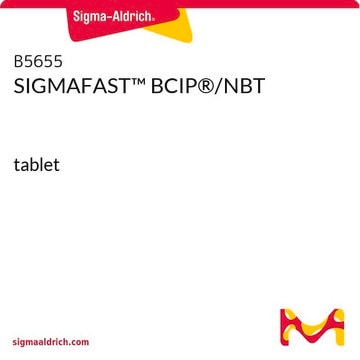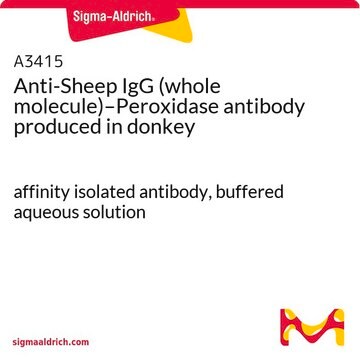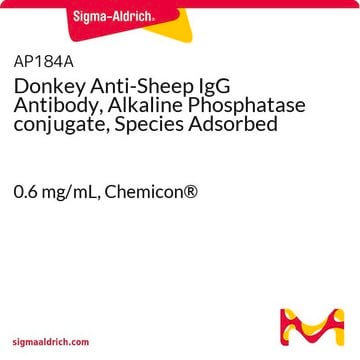A5187
Anti-Sheep IgG (whole molecule)–Alkaline Phosphatase antibody produced in donkey
affinity isolated antibody, buffered aqueous glycerol solution
Synonym(s):
Donkey Anti-Sheep IgG (whole molecule)–AP
About This Item
Recommended Products
biological source
donkey
conjugate
alkaline phosphatase conjugate
antibody form
affinity isolated antibody
antibody product type
secondary antibodies
clone
polyclonal
form
buffered aqueous glycerol solution
technique(s)
direct ELISA: 1:30,000
western blot: 1:30,000
shipped in
wet ice
storage temp.
2-8°C
target post-translational modification
unmodified
Related Categories
General description
Specificity
Immunogen
Application
Western Blotting (1 paper)
Physical form
Disclaimer
Not finding the right product?
Try our Product Selector Tool.
Storage Class Code
10 - Combustible liquids
WGK
WGK 1
Certificates of Analysis (COA)
Search for Certificates of Analysis (COA) by entering the products Lot/Batch Number. Lot and Batch Numbers can be found on a product’s label following the words ‘Lot’ or ‘Batch’.
Already Own This Product?
Find documentation for the products that you have recently purchased in the Document Library.
Customers Also Viewed
Our team of scientists has experience in all areas of research including Life Science, Material Science, Chemical Synthesis, Chromatography, Analytical and many others.
Contact Technical Service














